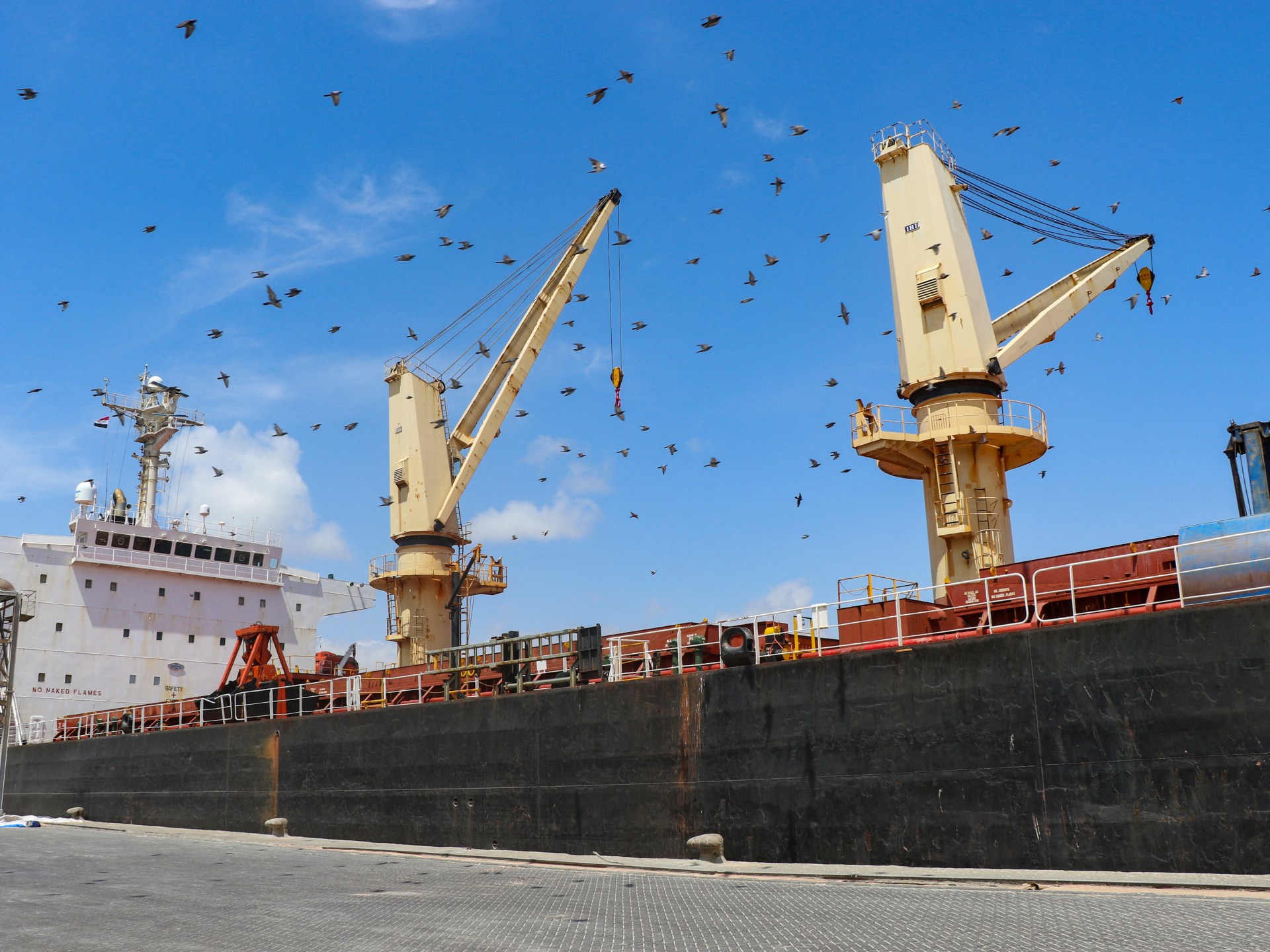Bussiness
Seafarers pay the price for the murky business of ship nationality

On April 13, the naval forces of Iran’s Islamic Revolutionary Guard Corps seized a Portuguese-flagged container ship, the MSC Aries, in the Strait of Hormuz and detained its crew. The vessel is operated by Swiss-based Mediterranean Shipping Company, which is leasing it from London-headquartered Zodiac Maritime, owned by Israeli billionaire Eyal Ofer. The 25 crew members are citizens of the Philippines, Pakistan, India, Estonia and Russia.
The incident was the latest escalation of tensions in waterways around the Middle East. Over the past few months, the Houthis of Yemen have been attacking ships they deem to be linked to Israel and its allies.
On March 6, one such attack killed three seafarers on the True Confidence ship. Two of them were nationals of the Philippines and the third was Vietnamese; the rest of the crew, who are from the Philippines, Vietnam, Sri Lanka, Nepal and India, were saved by an Indian naval ship. The Houthis claimed True Confidence was an “American ship”, but the vessel is Barbados-flagged, owned by a Liberia-registered company and operated by a Greek one.
These incidents illustrate how vulnerable seafarers can be due to unsafe waterways, but also due to the lack of global regulation on the shipping industry. The reason why so many different jurisdictions are involved in a single vessel is because the current rules allow shipping companies and operators to register in different countries and hire crew of any nationality.
Naturally, many companies choose jurisdictions which offer few labour and tax regulations and therefore little responsibility for the wellbeing and safety of crews on board ships registered with their flags. Companies also hire crew from countries where well-paid jobs aren’t easy to find, which can mean seafarers are more reluctant to speak out for fear of losing their income.
This practice, which is called “flags of convenience”, began in the United States in the 1920s when the government banned the production, transportation and sale of alcohol, pushing some ship owners to register their vessels in Panama to avoid these restrictions.
After prohibition was lifted, this practice persisted as American shipping companies realised its benefits of lax regulation. In 1948, the former US Secretary of State Edward Stettinius worked with the Liberian government to open its registry as a joint venture. To this day, the Liberian registry is operated out of Virginia, US.
My organisation, the International Transport Workers’ Federation, started its campaign against flags of convenience in 1948 in response to the establishment of the Liberian register – since it had so few restrictions for shipowners.
The shipping industry is reaping the benefits from the ease of low-cost, low-bureaucracy services provided by “rent-a-flag” states. This means minimal regulation, cheap registration fees, low or no taxes, and freedom to employ cheap labour on the global labour market. We call them flags of convenience because it is convenient for ship owners that there is no genuine link between that flag and the owners of the ship. This takes place despite the United Nations Convention on the Law of the Sea stating that a “genuine link” must exist.
The heart of the problem for seafarers is that ship owners select flag states they know will take little or no interest in enforcing labour protection standards. It’s a huge money-making operation. Ship owners pay to register their ships with their chosen flag registries. In turn, it’s bad business for registries to demand rigorous safety and welfare standards as they eat into profits.
For seafarers, this can mean very low wages, poor on-board conditions, inadequate food and clean drinking water and long periods of work without proper rest.
As an international trade union federation, we work tirelessly alongside our affiliates to advance and uphold transport workers’ rights through collective bargaining and strengthening international and national regulation.
Our global inspectorate of more than 130 dedicated inspectors – many of whom are former seafarers themselves – check ships calling into more than 120 ports across 59 countries, to ensure the seafarers have decent pay, working and living conditions. And yet, abusive practices persist. We receive distress calls from seafarers on a daily basis and we see time and time again, the rotten core of the shipping industry.
We have heard countless stories of seafarers abandoned, unpaid for months or even years, and their rights abused with complete impunity.
Just last week, we heard from a distressed Indian crew member still stranded: “My salary hasn’t been paid for more than three months – but there are some crew members unpaid for as long as seven months. The company did not supply provisions and fresh water – sometimes we were just fishing for survival. All crew members are getting depressed, and our families are getting into debt to survive.”
“Until now I didn’t receive any salary [for five months] and I would like to inform you we have shortages of food and fuel all the time, we are suffering all the time … Please I need your support,” an Indonesian seafarer told us last month.
Many seafarers are struggling due to wage theft and underpayment. The minimum wage for seafarers on flag of convenience ships covered by collective agreements is about $1,700 a month. Seafarers on flags of convenience ships without a collective agreement sometimes sail for $400 to $600. It doesn’t bear to think about the hourly wage this equates to. And even with such low pay, companies still regularly delay or withhold salaries.
Last year ITF Inspectors recovered more than $54m in unpaid wages stolen from the seafarers by ship owners operating predominantly under flags of convenience. We recover them through routine inspections that examine wage accounts and employment contracts – where it’s all too common to find discrepancies. Most ship owners will honour crew contracts when pushed – but we can, if need be, coordinate with port state control and dockers’ unions to ensure that ships cannot sail until seafarers are paid.
What we are seeing play out on the Red Sea exposes how the flags of convenience system can even mean seafarers risk their lives by sailing through unsafe areas – without the power to push back. Who will come to the rescue to protect crew on Panamanian, Liberian and Marshall Islands ships?
One Filipino seafarer told us: “Our company is still transiting the Red Sea even if it’s too dangerous. We just past [sic] the Red Sea … [and] during that time we heard a lot of vessels asking for assistance on a warship that they’re being attacked … People here are so worried … We cannot sleep very well thinking of our lives.”
Reports have shown that diverting from the Red Sea has led to greater profits for some in the shipping industry. This is due to higher costs associated with longer routes and as a result, an increased shipping demand because fewer ships are available. Yet we are still seeing companies willing to continue risking seafarers’ lives.
To suggest it’s just the way business is done is disingenuous. It is a choice.
This can only change if there is more transparency in the shipping industry and – as international law stipulates – there is a “genuine link” between the real owner of a vessel and the flag the vessel flies. The United Nations and its relevant bodies, the International Maritime Organization and International Labour Organization, must also provide more clarity around what a genuine link entails. Only then can unions and authorities truly hold ship owners and flag states to account.
There will never be a real level playing field as long as flags of convenience can continue to operate on lower standards than traditional national registers. Flag registers should not be allowed to operate as businesses.
Until then, seafarers’ rights will continue to be abused with impunity. It’s time to close the jurisdictional vacuum that exists at sea.
The views expressed in this article are the author’s own and do not necessarily reflect Al Jazeera’s editorial stance.









